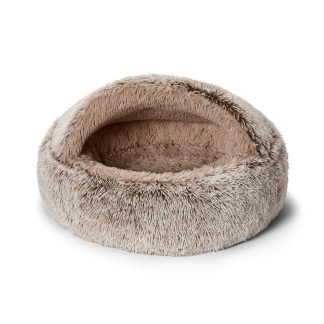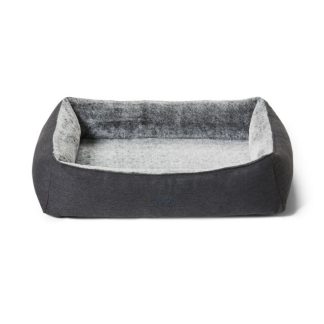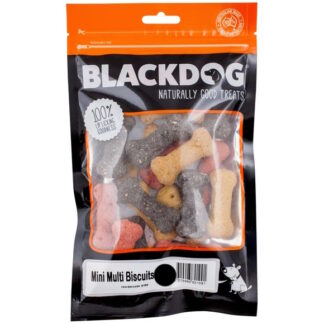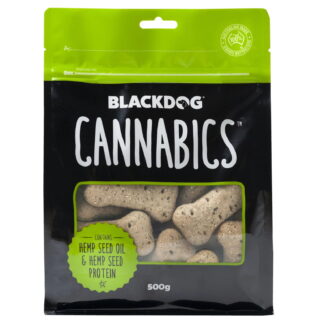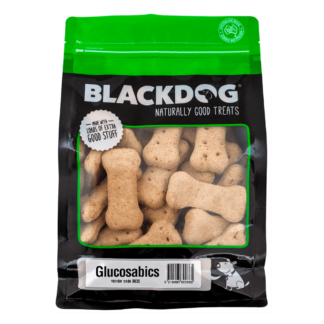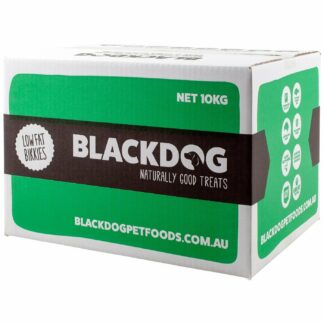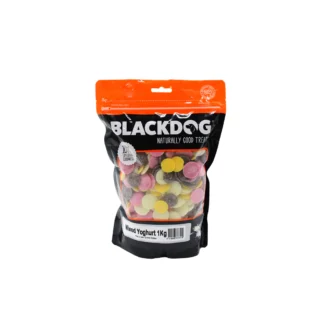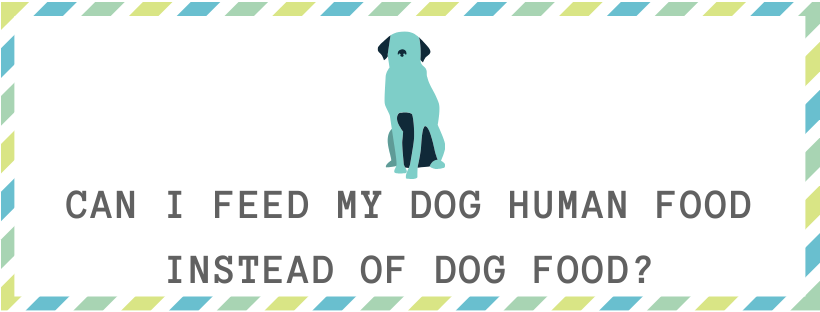
Where to begin when talking about can I feed my dog human food instead of dog food.
For the purpose of this blog we are writing from the perspective that your dog is already at adult stage and you are questioning if many dogs eat table food and what do dogs lie to eat.
That way you have already passed the early stages while your dog was a puppy, requiring a different diet and also if you have got your dog from an animal shelter, they are usually older than puppy stage, so that also fits in here.
There is a massive list of different commercially available products to suit dogs of various ages, breeds, sizes, and for your budget.
These are a few different product types with availability that may vary depending on where you live; fresh meat (such as beef, lamb, pork, chicken, turkey, rabbit, kangaroo and horse).
Canned food (usually heavily processed, could contain meat, vegetables, herbs and added vitamins, etc.).
Dry food (various kibble alternatives, usually heavily processed, could contain meat, vegetables, herbs and added vitamins, etc.).
Treats could include fresh animal bones for chewing, pigs ears (fresh or smoked), dog bone shaped dry treats, chicken and turkey necks.
Now we are going to take you through various best dog food 2020 types, that are safe or not so safe for your dog.
Can I feed my dog human food instead of dog food? Here are some safe foods for your dog
- Beef – Ground (Mince) or cubed is fine and is great for any recipe with homemade dog food with ground beef.
- Bread – Dogs can eat small amounts of plain bread (no spices or dried fruit including raisins), but there aren’t any health benefits. There is no nutritional value and can increase carbohydrates and calorie intake, as in humans. Homemade breads are a better option than store-bought. Commercially made bread usually contains sugar and unnecessary preservatives, so is usually best avoided.
- Cashew Nuts – Plain cashews are OK for dogs, but only a few at a time and not the salted variety. They contain proteins, antioxidants, magnesium, and calcium, but moderation is needed as they can lead to weight gain and other fat-related conditions.
- Cheese – Cheese is okay in small to moderate quantities only. In rare cases some dogs have been lactose intolerant, so be careful. It can be a tasty treat but select lower-fat varieties like cottage cheese or mozzarella or check the fat content of some “light” varieties. Take care with vegan cheeses as they may have been made from nuts.
- Coconut – We have mixed views with this one. According to the “AKC” website they say that it is okay for dogs and that it “contains lauric acid, which can help combat bacteria and viruses … can help with bad breath, clearing up skin conditions like hot spots, flea allergies, and itchy skin”. They also suggest that the coconut milk and coconut oil are safe for dogs too. However, in our own research it has been suggested that dogs should not be allowed to eat the coconut as it absorbs a massive amount of water and can swell up inside the dog, leaving them with a severe blockage. I guess it should be a case of using caution and noting how your dog reacted.
- Corn – Dogs can eat corn and it is one of the most common ingredients in commercially made dog foods. The cob can be hard for them to digest; possibly risking an intestinal blockage, so stick to off the cob and is a great item to add to fruits and vegetables dogs can eat list.
- Eggs – Cooked eggs are safe foods dogs can eat and are a source of protein. Can dogs eat eggs? Well yes, and they can also help an upset stomach. Eating raw egg whites can contribute to biotin deficiency; always cook the eggs all the way through. You can feed your dog eggs, scrambled, hardboiled, or poached – no more than a few times a week. Even the eggshells are edible; bake them for ten or fifteen minutes to soften and then grind them up (you may have seen this in raw dog food recipes for pitbulls).
- Fish – Fish contains good fats and amino acids and is one of the best dog food for small dogs. Oily fish such as salmon and sardines are especially beneficial. When giving dogs fish make sure to de-bone it, except for with the soft sardine bones. Never feed them uncooked or undercooked fish, only fully cooked and cooled, with a limit of no more than twice a week.
- Ham – Ham is okay for dogs to eat, but in moderation or as a small treat as it is high in sodium and fat.
- Honey – Dogs can eat honey as it contains nutrients such as vitamins A, B, C, D, E, and K, as well as calcium, copper, potassium, magnesium, and antioxidants. It can help with allergies as it introduces small amounts of pollen to their systems, building up immunity to allergens in your area. Honey can also be used as a topical treatment for burns and minor cuts.
- Liver – Liver, raw or cooked can be an optional raw dog food for beginners (no more than once a week to avoid a vitamin A toxicity build- up).
- Milk – Dogs can have milk but use caution as some dogs are lactose-intolerant and don’t digest milk well.
- Peanut butter – Peanut butter can be a great source of protein for dogs as it contains healthy fats, vitamins B, E as well as niacin. The healthiest option is raw and is great ingredient in raw dog food recipes for puppies, unsalted peanut butter but read the label carefully as some commercial brands contain xylitol, that can be toxic to dogs.
- Peanuts – Peanuts are safe for dogs to eat and contain good fats and proteins that can benefit your dog. They should only have them in moderation, as too much fat can lead to pancreas issues. Avoid salted peanuts.
- Popcorn – Unsalted, unbuttered, air-popped popcorn is OK for your dog in moderation. It contains riboflavin and thiamin that promote eye health and digestion, as well as small amounts of protein and iron. Discard un-popped kernels as they could become a choking hazard.
- Pork – Pork is a highly digestible protein, packed with amino acids, that contains more calories per weight than other meats. It may also less likely to cause an allergic reaction in some pets compared to other proteins.
- Prawns – A few prawns occasionally as a treat are okay, but must be fully cooked with the shell (including the tail, head, and legs) and the intestinal tract is removed completely. They are high in antioxidants, vitamin B-12, and phosphorus, as well as low in fat, calories, and carbohydrates.
- Quinoa – This is okay for dogs and is used in some high-quality dry dog foods (kibble), as it is a healthy alternative to soy, corn, and wheat and it has been said to be the best weight loss dog food for beagles.
- Salmon – Cooked salmon is an excellent source of protein, good fats, and amino acids. It promotes brain and joint health as well as aiding their immune systems and is one of the best dog foods for labs. Never give them raw or undercooked salmon as it contains parasites that can cause vomiting, diarrhea, dehydration, or death.
- Tuna – Cooked, fresh tuna is an excellent source of omega-3 fatty acids, which promotes heart and eye health can be fed to your dog occasionally as a digestive dog food. With canned tuna, it can contain small amounts of mercury and sodium, and should be avoided in excess. Fed as a treat prepared only in water, not oil; and avoid brands with spices, lemon, chili, etc. contain any spices.
- Turkey – Turkey is fine for dogs, but remove excess fat and skin from the meat and always check for bones, as they can splinter causing blockage or even tears in the intestines. Do not feed them any meat with excessive salt, seasonings, onions or garlic.
- Vegetables – You can feed your dog most raw or steamed vegetables, such as carrots, green beans, broccoli, cauliflower, peas, brussels sprouts, etc as it is a good choice for homemade dog food. Lettuce or other leafy greens are okay as vegetables to add to dog food. No onions.
- Boiled potatoes with the more colorful the potato (eg, gold and purple), the healthier it is. Dogs find the red and brown potatoes harder to digest. Sweet potatoes (kumara), which are not true potatoes, but the root of a flowering plant (ipomea), are a good source of vitamin A.
- Water additives – You can add organic apple cider vinegar to your dog’s drinking water (roughly one teaspoon to 1 Litre of water) to aid digestion and deter fleas.
- Wheat/grains – Dogs can eat wheat and other grains as some grains, such as wheat and corn are great sources of protein and can be the best dog food with grain, essential fatty acids, and fibre. It may be best to avoid grains if your dog has allergies.
- Yogurt – Plain yogurt is okay as a snack for dogs when thinking about can i feed my dog human food instead of dog food. However, some dogs may have trouble digesting dairy products, so monitor your dog’s reaction. Avoid any yogurts with added sugar, and skip all yogurt with artificial sweeteners.
What are some foods dogs cant eat? 6 things not to feed your dog.
Almonds – Dogs shouldn’t eat almonds as they can cause blockages in the esophagus or if not chewed completely, they can tear the windpipe. Salted almonds are especially dangerous (can increase fluid retention; potentially fatal to dogs prone to heart disease).
Chocolate – Dogs should never be given chocolate as it contains toxic substances called methylxanthines. These are stimulants that stop their metabolic process. Even a small piece can cause diarrhea and vomiting. Dark chocolate is the worst. A large amount can cause irregular heart function, seizures, or death.
Cinnamon – Cinnamon is not toxic to dogs, but is best avoided as a suggestion on what can dogs not eat. It contains oils that can irritate the mouth, making them uncomfortable and sick. It can also lower their blood sugar leading to diarrhea, vomiting, increased, or decreased heart rate, and even liver disease. In powder form it can cause difficulty breathing, coughing, and choking if inhaled.
Garlic – Never give dogs garlic or other Allium plants such as onions, leeks, and chives as it is the worst things to feed a dog. They are all toxic to dogs with garlic being five times more toxic than the rest. It can create anemia in dogs, with side effects such as pale gums, an elevated heart rate, weakness, and collapse. The poisoning can have delayed symptoms, so monitor them for a few days.
Ice cream – Dogs shouldn’t eat ice cream as it contains high levels of sugar.
Macadamia nuts – Dogs should never be given macadamia nuts as they one of the most poisonous foods for dogs. They can cause vomiting, increased body temperature, inability to walk, and lethargy as well as affecting the nervous system.
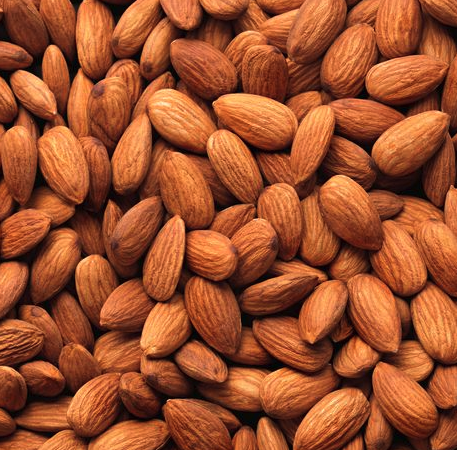
What about seasonal food?
We seem to be bombarded with reality TV cooking shows currently. However, one great fact gleaned from them is that they all seem to advocate going back to eating fruits and vegetables by season.
When pondering on can i feed my dog human food instead of dog food, as consumers we demand that all products are available all year round; even though, unbeknown to many people this means that some “fresh” produce can actually be kept in cold storage for many months, or longer.
Just how much nutrition is in that produce and were they genetically modified to last that long?
If we translate that school of thought across to our dog when they are sleeping in their designer dog bed, we need to consider what they ate through the year when still wild animals; before we domesticated them then they too would have been eating in season.
Australian veterinarian, Ian Billinghurst in 1993
“Racing greyhounds and sled dogs have long eaten raw food diets. Extending those feeding practices to the family pet is a more recent idea, proposed in 1993 by Australian veterinarian Ian Billinghurst. He called his feeding suggestions the BARF diet, an acronym that stands for Bones and Raw Food, or Biologically Appropriate Raw Food.”
Billinghurst suggested that adult dogs would thrive on an evolutionary diet based on what canines ate before they became domesticated: Raw, meaty bones and vegetable scraps. Grain-based commercial pet foods, he contended, were harmful to a dog’s health”.
Not unsurprisingly there has been reaction within the veterinarian science world, as mentioned by Elizabeth Lee:
“Many mainstream veterinarians disagree, as does the FDA. The risks of raw diets have been documented in several studies published in veterinary journals.
Potential benefits of the raw dog food diet that supporters tout include:
- Shinier coats
- Healthier skin
- Cleaner teeth
- Higher energy levels
- Smaller stools
Potential risks include:
- Threats to human and dog health from bacteria in raw meat
- An unbalanced diet that may damage the health of dogs if given for an extended period
- Potential for whole bones to choke an animal, break teeth or cause an internal puncture
-
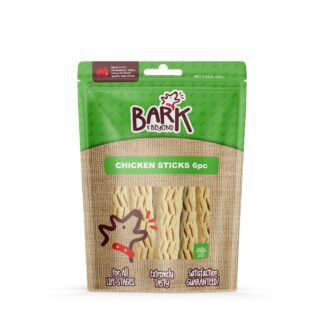 Bark & Beyond Chicken Sticks Dog Chews Natural TreatsrOriginal price was: $37.99.$36.99Current price is: $36.99.
Bark & Beyond Chicken Sticks Dog Chews Natural TreatsrOriginal price was: $37.99.$36.99Current price is: $36.99. -
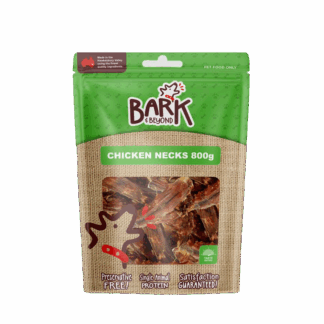 Bark & Beyond Chicken Necks Dog Treats 100% Natural$38.99
Bark & Beyond Chicken Necks Dog Treats 100% Natural$38.99 -
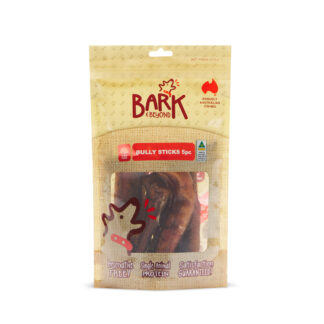 Bark & Beyond Bully Sticks Natural Dog Chews 140-180gOriginal price was: $39.00.$36.99Current price is: $36.99.
Bark & Beyond Bully Sticks Natural Dog Chews 140-180gOriginal price was: $39.00.$36.99Current price is: $36.99. -
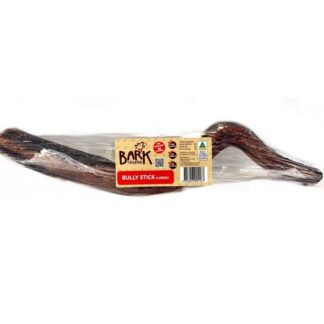 Bark & Beyond Bully Stick Dog Chews 100% Natural Beef$29.99 – $39.99
Bark & Beyond Bully Stick Dog Chews 100% Natural Beef$29.99 – $39.99 -
 Bark & Beyond Beef Paddywack Dog Chews 100% NaturalOriginal price was: $38.00.$34.99Current price is: $34.99.
Bark & Beyond Beef Paddywack Dog Chews 100% NaturalOriginal price was: $38.00.$34.99Current price is: $34.99. -
 Bark & Beyond Beef Paddywack Dog Chews 100% Natural$29.99 – $42.99
Bark & Beyond Beef Paddywack Dog Chews 100% Natural$29.99 – $42.99 -
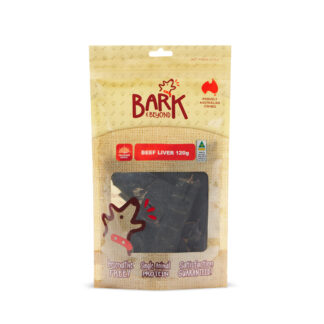 Bark & Beyond Beef Liver Dog Treats 100% Natural$33.99 – $48.89
Bark & Beyond Beef Liver Dog Treats 100% Natural$33.99 – $48.89 -
 Bark & Beyond Beef Jerky Dog Treats 450gOriginal price was: $69.00.$49.99Current price is: $49.99.
Bark & Beyond Beef Jerky Dog Treats 450gOriginal price was: $69.00.$49.99Current price is: $49.99. -
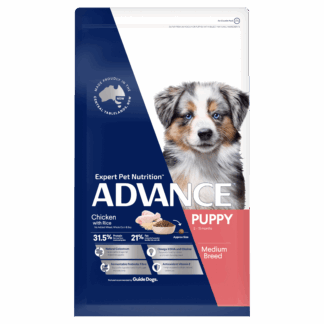 Advance Puppy Medium Breed Chicken 15kg$65.99 – $178.99
Advance Puppy Medium Breed Chicken 15kg$65.99 – $178.99
While there were some difference of opinion there I think that ultimately what is important is that a dog is fed a nutritious and healthy food when we are talking about the question of can I feed my dog human food instead of dog food. Find the best dog foods in 2020 that do not lead to poor health and that provides them with variation and interest through the year.
- When is dog diarrhea an emergency – The complete guide - October 17, 2022
- What do you do if an off-leash dog approaches you while you are walking a dog? - October 9, 2022
- Mindiampets Birthday Bacon Dog Cookie Crumbles - October 7, 2022

